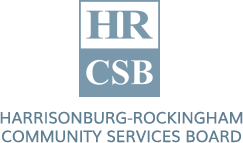CSU Specialist
Major Essential Functions:
- Assists in providing therapeutic interventions in both individual and group settings to persons who are in crisis due to their mental health status.
- Completes admission process and discharge process for individuals being admitted do/discharged from the program.
- Provides input in the development of treatment plans that address the needs of the resident’s treatment during enrollment and collaborates with Case Coordinator regarding needed referrals and services upon discharge.
- Works to establish linkages between resident and naturally occurring supports in the family and community, as well as with other service providing agencies.
- Assists residents with daily living tasks as needed, including general facility upkeep, laundry, meal preparation, and transportation.
- Accurately completes clinical documentation and other paperwork as required.
- In conjunction with other program staff, provides general supervision of the CSU, and ensures that policies and procedures are followed.
- Responds to emergency situations that occur and appropriately involves other providers, including other program staff, agency emergency services staff, emergency medical services, and law enforcement, as needed.
- Expected to help with routine tasks to help maintain the facility and program readiness for admissions, includes and not limited to, doing facility laundry, helping with cleaning surfaces, assisting other staff in kitchen duties such as putting away groceries etc.
- Expected to collaborate with multidisciplinary team on ensuring that all needed tasks are completed during assigned shifts.
- Makes effective use of available technology, including computers, e-mail, and voice mail in order to enhance customer service.
- Maintains effective relationships with co-workers and customers based on courtesy, compassion, and respect.
- Completes other tasks and duties as assigned by supervisor and/or other management staff.
Required Knowledge, Skills and Abilities:
- Knowledge of principles, practices, and techniques involved in the diagnosis and treatment of individuals with mental health, and co-occurring disorders, both individually and in a group setting.
- Knowledge of mental health, substance abuse and co-occurring treatment interventions both individually and in a group setting.
- Good diagnostic, evaluative, and crisis intervention skills.
- Knowledge of mental health recovery models of care.
- Knowledge of treatment modalities and intervention techniques, such as group therapy, behavior management, supportive counseling, family education, crisis intervention, and discharge planning.
- Skills in identifying and documenting a consumer’s needs for resources, services and other support; using information from assessments,
- Ability to problem-solve and respond quickly to crisis situations. Ability to function calmly in stressful situations.
- Ability to communicate effectively verbally and in writing.
- Ability to establish and maintain effective working relationships with other employees and with private and public agency personnel.
- The ability to work as part of a clinical treatment team is essential.
Minimum Education and Experience:
- Bachelors level in Human Services plus one year of experience in the human services field or a combination of education and experience that is equivalent is required.
- QMHP (Qualified Mental Health Professional) qualifications.
Additional Requirements:
- Mandt Training
- CPR Certification
- Trauma Informed Treatment
- First Aid
- Drivers License with acceptable record.
- Background check with favorable results.
- AED Training
Other Information:
Work Equipment: Telephone, PC, pager, AED, misc. household appliances (i.e. washer/dryer, stove, dishwasher)
Work Environment: Residential setting with normal lighting levels, temperature, air quality, ventilation and noise levels.
Work Location: 1353 N. Main St., Harrisonburg, VA 22802
Work Hazards: Standard hazards associated with a mental health treatment environment. Standard hazards associated with human service residential environment including hazards associated with problem behaviors; behaviors and hazards associated with necessary use of medical procedures. Use of universal precautions required. Use of protective equipment recommended.
Work Schedule: Hours include both first and second shift on weekdays and weekends in order to provide support to residents based on their needs. Some flexibility is required in order to meet and respond to coverage needs and individual residents’ needs.
HIPAA Access Level 2: Full read/write access to protected health information (PHI), limited to the minimum necessary, for all clients directly served or assigned, as well as all clients indirectly served through case consultation, clinical supervision, program management, or coverage requirements. Staff at Level 2 are allowed to seek out client PHI as necessary to perform their assigned duties, but are expected to exercise due precautions to limit exposure to any PHI which is outside the scope of their need to know. Utilization of information will be in accordance with HIPAA regulations regarding use limitation, disclosure and requests of PHI.
